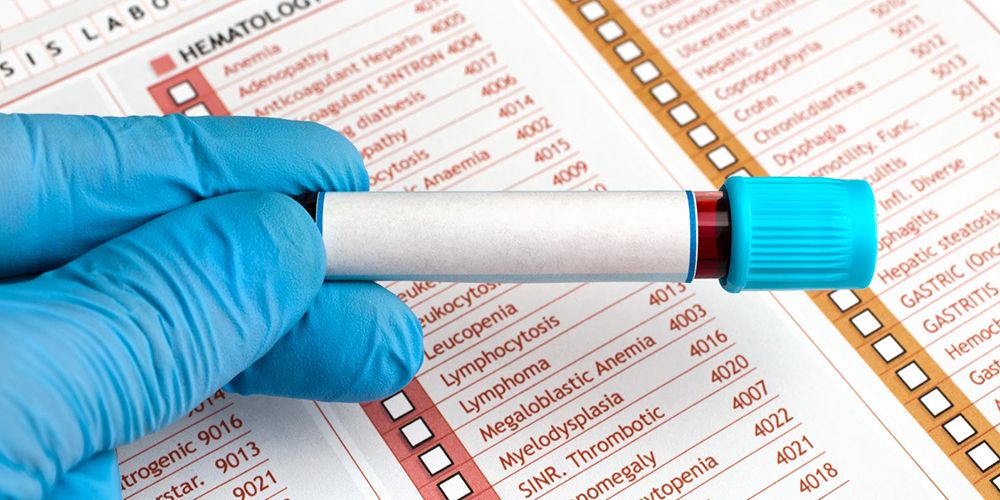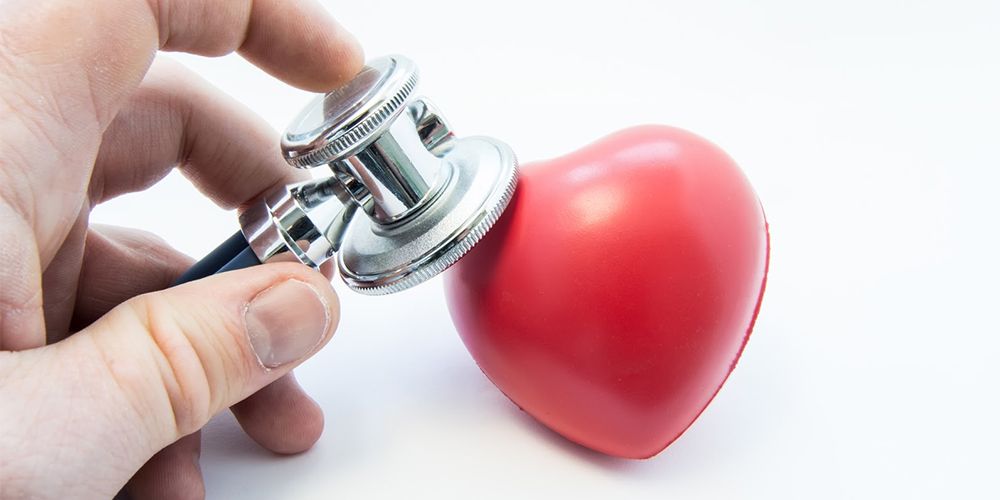Have you ever had a racing heart, shaking hands, excessive sweating, irritability, a restless feeling, sleep problems, or a feeling of impending doom? You may have felt like you were having a heart attack or experiencing a serious medical issue. Anxiety disorders are the most prevalent mental health conditions in the United States, afflicting nearly 25 million Americans.1 A definitive diagnosis of anxiety disorder is difficult. There are several other medical disorders whose symptoms overlap with symptoms of anxiety, there are no known etiological factors or causes of anxiety disorders, and presentation can evolve over a lifetime.
The lack of a definitive diagnosis for anxiety disorder is in itself a stressor for people suffering from anxiety. Even when a medical workup is complete, you may still have a lingering feeling of alarm that is difficult to calm.2 You and your health care professional can collaborate to evaluate your symptoms in a way that provides reassurance to you as a sufferer of anxiety and rules out other probable medical conditions, without ordering excessive labs and other tests that may also adversely affect your health.
Make an appointment with your Doctor
When an individual seeks care from a healthcare professional with symptoms of anxiety. The first step in the evaluation process is to gather a history. Your health care provider may question you on the use or ingestion of the following:
- Caffeine-containing beverages such as coffee, tea or cola
- Alcohol or nicotine usage
- Over the counter medications with caffeine or sympathomimetics (stimulate the flight or fight nervous system in times of stress or danger)
- Herbal medications
- Any street drugs3
- Prescription medications such as opiates and benzodiazepines
Physical Exam
After history, the next step in a medical evaluation is a physical and mental status exam. The purpose of these exams is to rule out other disorders that may present with anxiety as a primary symptom.
In a mental status exam, your level of anxiety is evaluated, as well as your level of mental activity, speech, mood, thought process, level of insight, and judgment. In addition, any suicidal ideation or plan and any difficulties with memory or recall are assessed.3
Next is a physical examination to look for an elevated heart rate, rapid breathing, elevated temperature, high blood pressure, or tremors. After a full physical exam, a health care professional may order baseline labs to rule-out abnormalities in electrolytes, hormone levels, or cell counts that may be contributing to the symptoms you are experiencing.
Baseline Laboratory Evaluation for Anxiety Disorder
There are no specific laboratories or other tests that conclusively diagnose anxiety disorders. However, the following tests are considered a baseline evaluation to rule out other medical conditions.3


Complete Blood count: This test measures the actual number of blood cells in a given sample of blood. A low number of red blood cells is called anemia. Symptoms of anemia can include extreme fatigue, weakness, chest pain, a fast heart rate, and shortness of breath.
Chemistry Profile: This test includes measures of metabolism, electrolyte levels, blood glucose, blood proteins, and acid/base balance. Abnormalities in electrolyte or blood glucose levels may indicate a metabolic disorder, many of which have symptoms that may overlap with an anxiety disorder.
Thyroid Function Tests: The thyroid is an endocrine gland that is found in the lower front part of the neck. Hormones produced by the thyroid gland help the body use energy, stay warm, and regulate the function of many organs. To test for thyroid dysfunction, your health care provider may order thyroid-stimulating hormone (TSH) and T4 levels. A low TSH and a high T4 may indicate hyperthyroidism (further or more specific testing may be required if these screening labs are abnormal). Hyperthyroidism or elevated thyroid hormone can cause an irregular or rapid heartbeat, sweating, and an intolerance to heat.
Urinalysis: A urinalysis can be used to detect urinary tract infections, kidney disease, and diabetes, along with a wide range of less-common disorders.
Urine Drug Screen: A urine drug screen can detect prescription and non-prescription medications and herbal supplements, which may be causing symptoms of anxiety.
Medical Disorders with anxiety as a symptom
Several medical disorders may have symptoms that overlap with anxiety disorders. Abnormalities in one of the baseline lab tests may point to one of the following disorders. To rule-out these disorders, a medical professional may order additional labs or tests.
Abnormal glucose levels
- Abnormal blood glucose levels found in a chemistry profile can signal diabetes if the blood glucose is high or hypoglycemia if the blood glucose is low, both of which may have symptoms that overlap with anxiety. Symptoms of hypoglycemia may include confusion, heart palpitations, or feelings of irregular heartbeat, shakiness, or anxiety. Symptoms of diabetes may include increased thirst, frequent urination, hunger, fatigue and blurred vision.
Abnormal calcium or phosphorus levels
- The parathyroid glands are small glands in the neck that secrete parathyroid hormone. Parathyroid hormone helps control the levels of both calcium and phosphorus. With hyperparathyroidism, too much parathyroid hormone is released, and blood calcium rises. With hypoparathyroidism, too little parathyroid hormone is released, causing a decreased calcium level. Hyperparathyroidism presents with muscle weakness, fatigue, depression, trouble concentrating, and a loss of appetite.4 Hypoparathyroidism presents with muscle cramps and paresthesia or a feeling of numbness or tingling in the extremities.
Abnormal sodium or potassium levels
The adrenal glands are small glands located on top of the kidneys, which produce many hormones that are essential for normal body function. Addison’s disease results when the adrenal glands do not produce enough cortisol and aldosterone. Cortisol is a hormone that protects and regulates the body’s reactions in stressful situations. Aldosterone helps regulate the levels of both sodium and potassium in the blood. Symptoms of Addison’s disease can include muscle weakness, fatigue, and tiredness, decreased appetite, low blood sugar, a decrease in heart rate or blood pressure, nausea or vomiting.5 Cushing’s disease results when an excess of cortisol is produced due to excessive stimulation of the adrenal glands by the pituitary gland, a gland at the base of the brain which regulates many other glands. Symptoms of Cushing’s disease can include a rounding of the face, added fat at the back of the neck, easy bruising, stretch marks, excessive weight gain, generalized weakness, diabetes and high blood pressure. 6


Abnormal physical exam findings
Cardiac disorders such as a heart attack or myocardial infarction can present with shortness of breath, chest pain, palpitations, or sweating. These disorders can be serious or life-threatening, and patients should seek immediate medical care. Cardiac arrhythmias can present with a rapid or irregular heartbeat, shortness of breath, or fainting. Mitral valve prolapse results when the valve between the upper and lower chamber of the heart bulges back into the upper chamber when the heart contracts. Symptoms of mitral valve prolapse can include a racing or irregular heartbeat, dizziness or lightheadedness, difficulty breathing or shortness of breath, and fatigue. An electrocardiogram or a treadmill electrocardiogram may be ordered to rule-out mitral valve prolapse or an arrhythmia.7
Asthma can present with shortness of breath and wheezing. Breathing tests or pulmonary function tests can help rule out asthma.
The workup for brain disorders may include an electroencephalogram to rule out seizures. Imaging studies, such as a CT or MRI, may be considered if a tumor or other structural abnormality of the brain is suspected.
Finally, sleep disorders such as sleep apnea can also cause irritability and fatigue and can increase the risk of high blood pressure, heart problems, type two diabetes, metabolic syndrome, and other complications. Sleep tests may be needed to diagnose sleep apnea.8
There are several other disorders in which anxiety may be an early manifestation or symptom of a medical illness. This article is meant to provide information on some of the more common disorders considered when a patient presents with anxiety. It is intended to provide information, not as a substitute for the care or medical advice provided by a qualified medical professional.
The first step in any Panic and Anxiety related plan for good mental health is to rule out any physical issues you may have and treat those first before beginning a therapy or medication regimen.
1. American Psychiatric Association. (n.d.) Help with Anxiety Disorders. Retrieved from https://www.psychiatry.org/patients-families/anxiety-disorders
2. Bystritsky, A., Khalsa, S. S., Cameron, M. E., & Schiffman, J. (2013). Current diagnosis and treatment of anxiety disorders. P & T: a peer-reviewed journal for formulary management, 38(1), 30–57.
3. Bhatt, N. Baker, M. Jain, V. (2019). Anxiety Disorder Treatment and Management. Retrieved from https://emedicine.medscape.com/article/286227-treatment#d8
4. Cleveland Clinic. (2016). Hyperparathyroidism. Retrieved from https://my.clevelandclinic.org/health/diseases/14454-hyperparathyroidism
5. Macon, B & Yu, W. (2019). Addison’s Disease. Retrieved from https://www.healthline.com/health/addisons-disease
6. UCLA Health. (n.d.). Cushing’s Disease. Retrieved from http://pituitary.ucla.edu/cushings-disease
7. Mayo Clinic. (n.d.). Mitral valve prolapse. Retrieved from https://www.mayoclinic.org/diseases-conditions/mitral-valve-prolapse/symptoms-causes/syc-20355446
8. Mayo Clinic Staff. (n.d.). Sleep apnea. Retrieved from https://www.mayoclinic.org/diseases-conditions/sleep-apnea/diagnosis-treatment/drc-20377636



